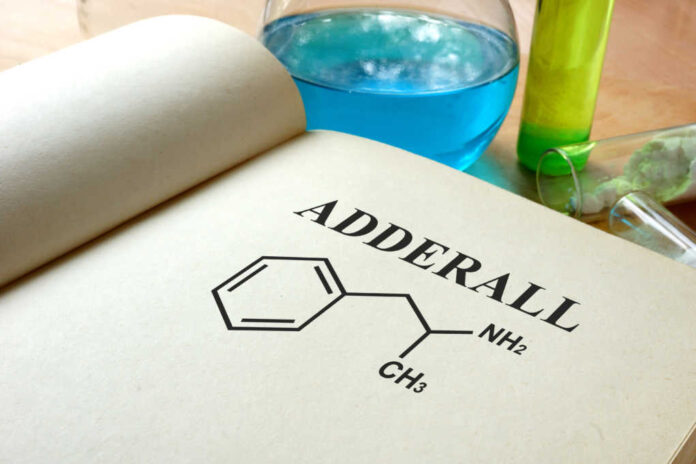
Adderall – a combination of dextroamphetamine and amphetamine – is prescribed to people with Attention Deficit Hyperactivity Disorder (ADHD) to reduce impulsivity and hyperactivity.
It has also become a popular “study drug” for college students and professionals who want to increase their focus and productivity even though they don’t have an ADHD diagnosis.
Despite the claims of many people that Adderall helps them focus and study, the drug appears to affect minimal improvements to academic performance in individuals without ADHD, and evidence suggests it may even have the opposite effect.
How Adderall Helps People With ADHD
People with ADHD often have difficulty completing tasks and tend to be easily distracted. They may also feel restless and fidgety, have trouble sitting still, and be more impulsive than others.
Adderall stimulates the central nervous system, putting you into a more alert “fight or flight” state. It increases heart rate and blood pressure and can make you feel energized and euphoric.
This stimulant effect increases wakefulness and vigilance, which can be helpful for people with ADHD who have problems with focus and paying attention. But this might not translate into better learning and performance, especially for people who don’t have the underlying impairments that Adderall attempts to correct.
Why Adderall Might Not Help You
Although stimulants may improve sustained and focused attention, this can backfire if the user’s attention grabs onto irrelevant distractions. As cognitive flexibility (the ability to adapt to changing conditions) is impaired, complex memory and problem-solving tasks (planning and decision-making, for example) can become more complex.
While there might be a slight increase in memory encoding and information processing, studies show that Adderall usage can lead to errors of false recognition.
Amphetamines appear to increase memory recall errors while simultaneously increasing confidence in incorrect responses, leading to disastrous academic and professional consequences.
It’s also worth considering the negative side effects of Adderall use:
- dry mouth
- insomnia (leading to reduced sleep quality and increased stress and fatigue)
- increased blood pressure and heart rate (increasing the risk of cardiovascular disease)
- increased anxiety, depression, and psychotic symptoms
The euphoric effects of amphetamines can also lead to addiction and abuse.
Healthier Ways To Improve Your Cognitive Performance
As more and more research demonstrates that stimulants are more effective at correcting deficits than “enhancing performance,” the dream of “smart drugs” that can magically improve cognitive abilities is beginning to fade.
But there are other safe and effective, evidence-based ways to improve your cognitive performance.
Exercise reduces stress and anxiety, improves physical, mental, and emotional health, and floods the brain with refreshing oxygenated blood.
Improving the quality of your sleep can help you stay more alert throughout the day.
Healthy strategies to reduce and cope with stress can be learned, making it easier for you to get more done without becoming overwhelmed.
Don’t wait until the last minute to try to cram everything in. Even with stimulants, this is unlikely to be effective.
Even on the occasions, it feels like the amphetamines are helping, you might be just covering up the short-term struggle without actually addressing the underlying causes of your inability to concentrate.






















